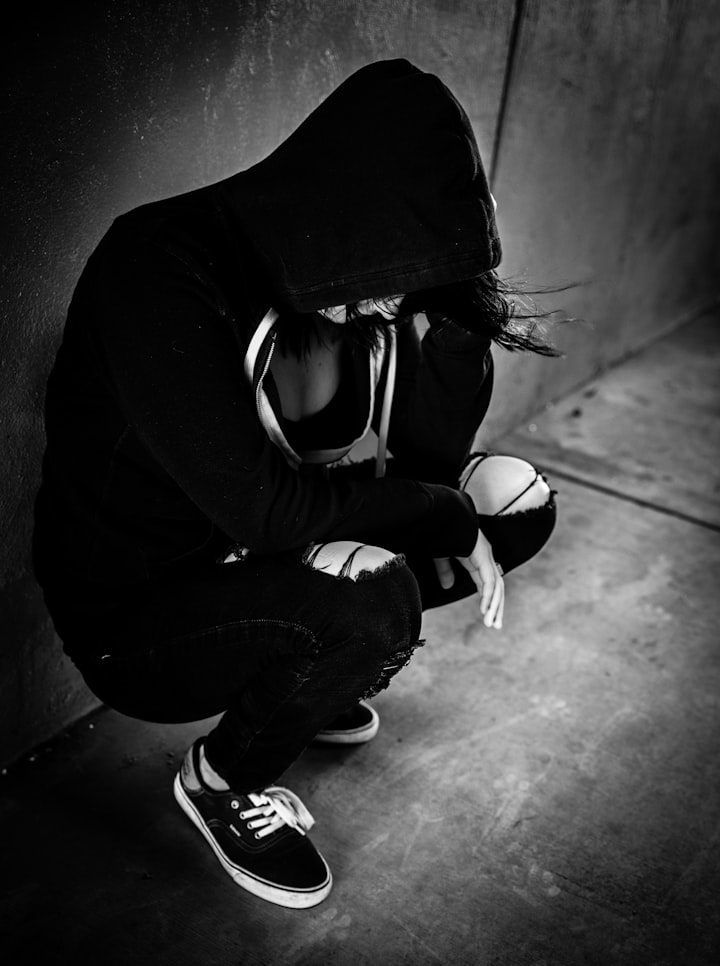
Lack of sleep can worsen symptoms of depression and is a common symptom. Alcohol and drug use The use of alcohol or recreational drugs increase the risk of depression and can worsen symptoms. Many people with depression also have a drug or alcohol use disorder.
A person who uses drugs or alcohol in an unhealthy way due to depression needs help with both depression and drug or alcohol use disorders. A treatment plan for diagnosing depression, anxiety disorder or substance dependence is designed to help a person manage and simultaneously reduce symptoms of these conditions.
Manage your symptoms In addition to a formal treatment plan by your doctor, these strategies can help you find relief from symptoms. However, it is important to know that some of these strategies may not work for everyone, and some of them may not even work all the time.
While many people take medications such as antidepressants to treat depression, several natural methods help to manage symptoms and reduce the risk of future episodes. Treatment focuses on taking specific steps to overcome anxiety and depression. The goal of treating depression and anxiety is to create a range of treatment options that work and help to the extent that you need to apply any strategy.
Exercise research shows that exercise can act as an antidepressant, and experts encourage doctors to include physical activity in the treatment. Exercise can help with depression and anxiety disorders because it releases chemicals in the body that help you feel good and relax.
Relaxation techniques such as meditation and mindfulness have been shown to alleviate symptoms of depression and anxiety disorders and improve quality of life. Daily relaxation practices can help alleviate symptoms of depression, relieve stress, and increase feelings of joy and well-being.
Exercise is a powerful antidepressant and one of the most important tools in your recovery arsenal. Therapies and medications can make a difference, but you are on your own to fight.
Let yourself feel what you are feeling and know that it is not your fault: depression and anxiety disorders are illnesses. Nobody suffers from anxiety disorders or depression alone, not really. Everything you feel is the result of the underlying causes and triggers, and it won't lead to anything you've done or haven't done.
Anxiety can manifest as anxiety, restlessness, inability to concentrate at work or at school, difficulty falling asleep or falling asleep at night, and mild irritation. Fear can make it difficult to talk to others in social situations because you feel judged by symptoms such as stuttering, sweating, flushing, and upset stomach.
Anxiety can come out of the blue, such as a panic attack, a sudden spike in anxiety that makes you feel like you're having a heart attack, going crazy, or losing control. It can be present at any time, but a generalized anxiety disorder spreads the omnipresent worries that consume you when you look to the future with fear.
It can be excruciating to watch a loved one experiencing a panic attack or being scared every day, but there are things you can do to help them. Fear can feel like an all-consuming fear of things that seem irrational to others. It can be difficult to relate to this fear and as a result, many people do not know how to help someone with anxiety best.
Many people with anxiety disorders may try to avoid situations that trigger an increase in anxiety but that does not solve their underlying fears and can disrupt professional and personal activities. Sometimes a person with an anxiety disorder is accustomed to worrying so much that such states of distress and anxiety seem normal.
Although the effects of an anxiety disorder can be considerable, it is one of the most treatable mental illnesses. This does not mean that reducing anxiety is easy, but treatment can help. A person with persistent or significant anxiety or sleep problems should talk to a doctor who can assess their situation and discuss the pros and cons of possible treatments in their case.
There is clinical evidence that some forms of psychotherapy can reduce distressing symptoms of anxiety. Cognitive-behavioral therapy (CBT) is particularly effective because it spends a lot of time fighting negative beliefs that tend to cause anxiety. These therapies catalyze cognitive changes that cause the brain to restructure to produce less anxiety.
Patients learn to understand how their thoughts contribute to their anxiety symptoms because of the cognitive component of therapy. By learning to change thought patterns, patients can reduce the likelihood and intensity of anxiety symptoms. Here are some examples of cognitive strategies your therapist can use to help you reduce anxiety.
In doing so, you will develop a more balanced perspective that can help alleviate your depression. If you take self-help measures, make positive lifestyle changes or find your depression worsening, seek professional help. Once you receive professional help, these self-help tips can be part of your treatment plan to speed up your recovery and prevent a return to depression.
Depending on how the conversation goes, you can ask your loved ones what they think they can do to support and manage their fears. Know when to seek help If the anxiety of your loved ones begins to affect their ability to enjoy life, interact at school, work, or hang out with friends, or if it causes problems at home, it may be time to seek professional help.
Chronic and severe symptoms are a sign of a generalized anxiety disorder (GAD), which affects about 40 million adults in the United States according to the World Health Organization (1.13). Medications can help relieve anxiety symptoms, but not depression symptoms. Drug management with antidepressants works on its own, along with cognitive behavioral therapy (CBT), which teaches how to reduce anxiety in the face of stressful situations.
About the Creator
Son Sim
Love writing poems, fiction stories and a lot more





Comments
There are no comments for this story
Be the first to respond and start the conversation.